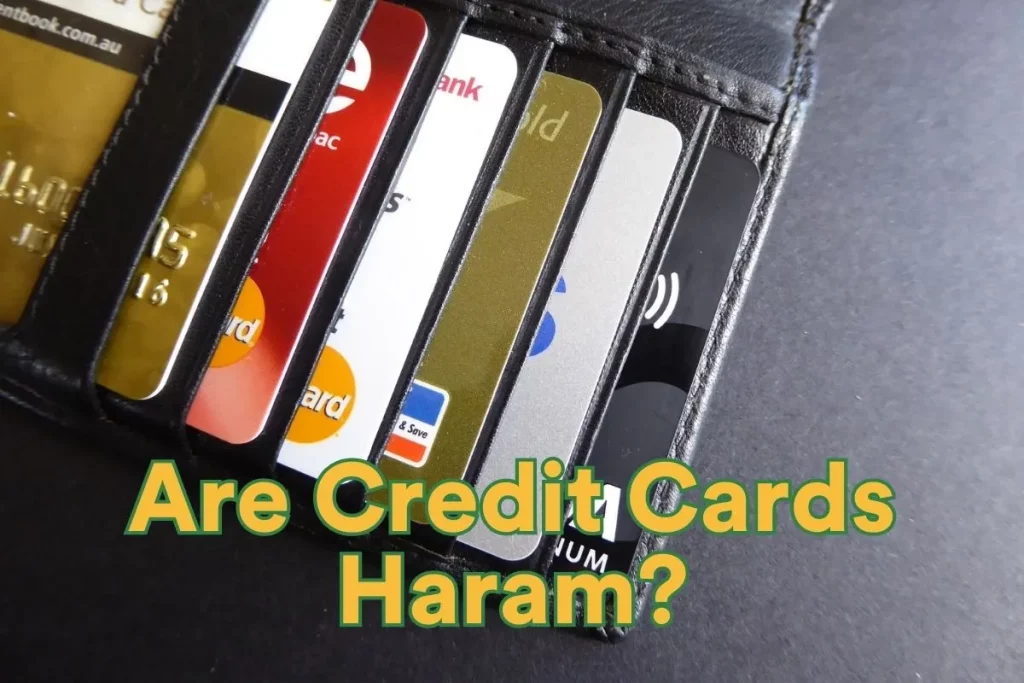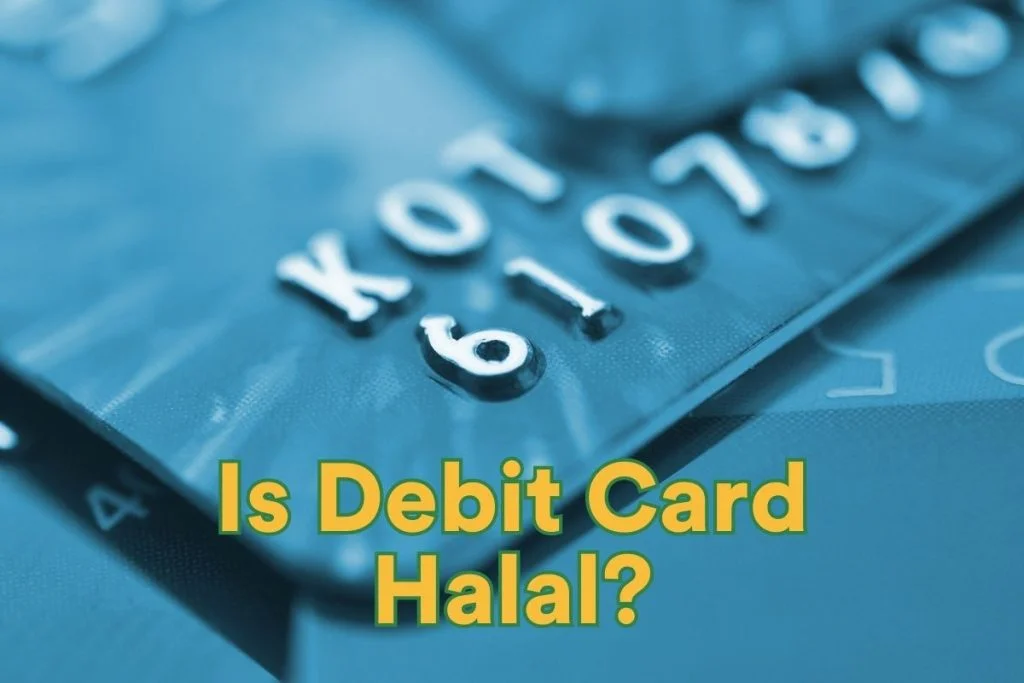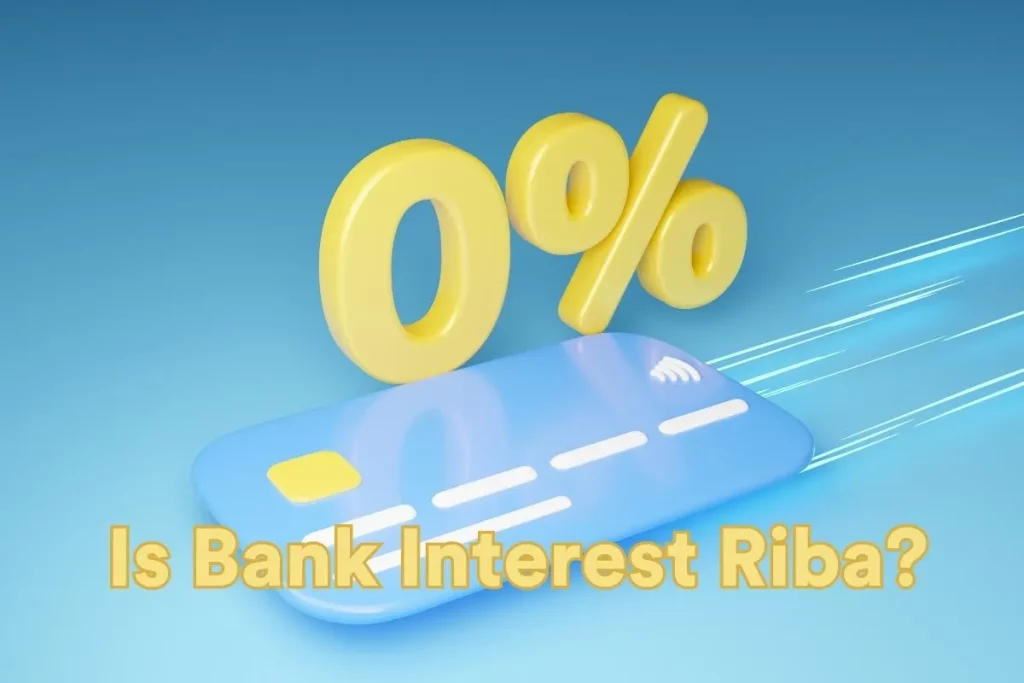Have you ever wondered if credit cards are halal (permissible) or haram (forbidden) in Islam? Let’s dive into this topic and get a better understanding.
Credit cards are incredibly convenient in our modern lives, right? But for many Muslims, there’s a big question mark about whether they align with Islamic finance rules.
Key Takeaways
| ✅ There’s a clear no-no on interest and usury in Islam. This makes credit cards a bit of a hot topic for Muslims. |
| ✅ In Islamic finance, credit follows the principle of Qard al-Hasan. This means giving loans with goodwill, no strings attached, and definitely no interest involved. |
| ✅ While credit cards offer many benefits, the interest charges can be a significant burden for those who cannot repay the amount in full. |
| ✅ Alternatives for halal credit cards |
Credit Cards: A Brief Overview
Credit cards, introduced in the mid-20th century, have become a ubiquitous part of modern financial life. They are issued by financial institutions and allow cardholders to borrow funds, up to a certain limit, for the purpose of making purchases or withdrawing cash. Credit cards operate on a revolving credit system, where users can carry a balance from month to month, and interest is charged on the outstanding balance if it’s not fully paid off each billing cycle.
Credit cards offer several benefits such as convenience, security, and the ability to build a credit history. They often come with additional perks like reward points, cash back, or travel benefits. However, they also carry potential risks such as high interest rates, late fees, and the possibility of accumulating debt.
Interest and Usury in Islam
Scholars have different opinions on this matter, those who forbid, deemed interest to be the same as “riba”, thus it is strictly prohibited. Riba is considered a form of usury and is seen as exploitative because it creates unjust gain at the expense of others.
The prohibition of riba is based on teachings from the Quran and Hadith, and it is a fundamental principle in Islamic finance.
ٱلَّذِينَ يَأْكُلُونَ ٱلرِّبَوٰا۟ لَا يَقُومُونَ إِلَّا كَمَا يَقُومُ ٱلَّذِى يَتَخَبَّطُهُ ٱلشَّيْطَـٰنُ مِنَ ٱلْمَسِّ ۚ ذَٰلِكَ بِأَنَّهُمْ قَالُوٓا۟ إِنَّمَا ٱلْبَيْعُ مِثْلُ ٱلرِّبَوٰا۟ ۗ وَأَحَلَّ ٱللَّهُ ٱلْبَيْعَ وَحَرَّمَ ٱلرِّبَوٰا۟ ۚ فَمَن جَآءَهُۥ مَوْعِظَةٌۭ مِّن رَّبِّهِۦ فَٱنتَهَىٰ فَلَهُۥ مَا سَلَفَ وَأَمْرُهُۥٓ إِلَى ٱللَّهِ ۖ وَمَنْ عَادَ فَأُو۟لَـٰٓئِكَ أَصْحَـٰبُ ٱلنَّارِ ۖ هُمْ فِيهَا خَـٰلِدُونَ
Those who consume riba will stand ˹on Judgment Day˺ like those driven to madness by Satan’s touch. That is because they say, “Trade is no different than riba.” But Allah has permitted trading and forbidden riba.
Whoever refrains—after having received warning from their Lord—may keep their previous gains, and their case is left to Allah. As for those who persist, it is they who will be the residents of the Fire. They will be there forever.
This prohibition extends to all forms of interest, whether it is from a bank, a credit card, or any other means of financial transaction involving interest. Given these principles, the use of conventional credit cards, which typically involve interest charges when a balance is carried over, can be seen as contrary to Islamic teachings.
However, in recent years, some financial institutions have developed Sharia-compliant credit cards that do not charge interest, instead using a fixed fee or profit rate system, providing a viable alternative for Muslim individuals seeking to adhere to their religious beliefs while participating in the modern financial system.
Concept of Credit in Islam
In Islam, the concept of credit is based on the principle of Qard al-Hasan, which means a benevolent loan. This loan is given without any interest or profit, and the borrower is expected to repay only the principal amount.
Interest and usury are strictly forbidden in Islam, as they are considered exploitative and harmful to society. Therefore, many Muslims are skeptical about using credit cards, as they often involve interest payments and fees.
Credit can be seen as a way to facilitate trade and commerce, which is encouraged in Islam. However, there are certain principles that must be followed in order to ensure that credit is used in an ethical and responsible manner.
Firstly, it is important to note that Islam prohibits the charging of interest (riba) on loans. This means that any credit extension must be done without the expectation of receiving interest payments in return. Instead, the lender may charge a fee for the service provided, such as an administration fee.
Secondly, credit must be extended in a manner that is fair and just. This means that the terms of the credit agreement must be clear and transparent, and both parties must agree to them willingly and without coercion. Additionally, the lender must not take advantage of the borrower’s financial situation or charge excessive fees or penalties.
Finally, credit must be used in a responsible manner. This means that the borrower must only take on credit that they are able to repay, and must make timely payments in accordance with the terms of the agreement. Failure to do so can lead to financial hardship and potentially harm the borrower’s creditworthiness.
Overall, while credit is not inherently haram in Islam, it must be used in a manner that is ethical, responsible, and in accordance with Islamic principles.
Are Credit Cards Haram?
Riba, or interest, is strictly prohibited. Therefore, the use of traditional credit cards could be considered haram, or forbidden, as they typically involve paying interest when the balance is not fully paid off. However, there are alternatives like Islamic credit cards, which are designed to comply with Sharia law and do not involve interest charges.
Alternatives to Traditional Credit Cards
Traditional credit cards, while convenient, may not be suitable for everyone due to religious beliefs, financial circumstances, or personal preferences. In such cases, there are several alternatives available that offer the convenience of a credit card without the associated risks of debt and interest.
Islamic Credit Cards
Islamic credit cards are a type of credit card that comply with Islamic Sharia law, which prohibits the charging or payment of interest. Unlike traditional credit cards, Islamic credit cards do not involve transactions based on riba (interest), gharar (uncertainty), or maysir (gambling). Instead, they operate on the principles of Ujrah (service charge), Ta’widh (compensation), or Takaful (guarantee).
These cards allow Muslims to engage in modern financial transactions while adhering to their religious beliefs. They offer similar conveniences to traditional credit cards, such as worldwide acceptance, cash advance facilities, and online payment capabilities. However, the way in which fees, payments, and balances are managed is structured to ensure compliance with Islamic law.
Debit Cards and Prepaid Cards
Debit cards and prepaid cards are another alternative to traditional credit cards. Debit cards are linked to a user’s bank account, and transactions are funded by the money available in the account. This means that users can only spend what they have, helping to prevent debt accumulation.
Prepaid cards work similarly but are not linked to a bank account. Instead, they are preloaded with a specific amount of money that the user can spend. Once the balance is depleted, the card can be reloaded.
Both debit and prepaid cards offer the convenience of credit cards, such as online purchase capabilities and wide acceptance, but without the risk of incurring debt or paying interest. They can be an excellent option for individuals seeking to manage their spending more effectively, for parents wishing to give their children access to funds without the risk of overspending, or for those who do not have access to traditional banking services.
Allahu A’lam (Allah knows best)
FAQ
Is credit card cashback haram?
In Islamic finance, cashback from credit cards is generally not considered haram, or forbidden, as long as it’s not tied to paying or accruing interest. Cashback is seen as a form of discount or rebate on your purchases, which is permissible. However, if the credit card involves interest charges or from non-Islamic finance, the entire contract might be considered haram, including the cashback.
Is credit card rewards haram?
Same as the previous answer, credit card rewards are generally permissible and not considered haram, as long as they are not tied to paying or accruing interest. Rewards like points, air miles, or perks are often viewed as a form of gift (hibah) or benefit provided by the card issuer.
However, if the credit card involves interest charges, the entire contract might be considered haram, including the rewards.
Is there a halal credit card?
Yes, there are halal credit cards available, often referred to as Islamic credit cards. These are designed to comply with the principles of Islamic Sharia law, which prohibits the charging or payment of interest, known as riba.
Islamic credit cards operate on different principles such as Ujrah (fee for services), Tawarruq (monetization), or Murabahah (cost plus profit). These principles ensure that credit card transactions remain interest-free and adhere to the ethical standards set by Islamic law.
Various Islamic banks and financial institutions around the world offer these Sharia-compliant credit cards. They provide many of the same features as conventional credit cards, such as global acceptance, online payment facilities, and even rewards programs, but without any involvement of riba.
However, the availability of Islamic credit cards may depend on the region and the specific bank. It’s always best to consult with the bank or financial institution directly for detailed information.
- Is Pop Tarts Halal? What You Need to Know - February 18, 2024
- Are Graham Crackers Halal in Islam? - January 19, 2024
- Is Keebler Wheatables Halal? - January 18, 2024





